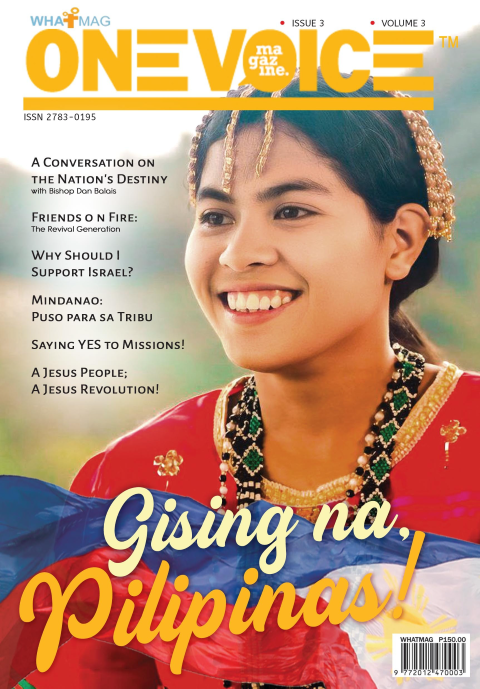“So, what do you do as missionaries?”
“We do EthnoArts work.”
Whenever we get to this point in conversations, we almost always launch into a mini-lecture about what we do in the field. When people hear words like “church planter,” or “outreach volunteer,” they seem to understand ministry descriptions right away. But what we do is quite unheard of in mission circles. “Yeah. Wait… EthnoArts?”
What is EthnoArts?
It is both an approach and a mindset towards a culturally sensitive and contextualized missions ministry.
On one hand, it is an approach. The term “EthnoArts” is a combination of the words “ethnic” and “arts” because it uses an ethnic people’s art form to achieve a range of goals—from community-based to spiritual. We serve indigenous people groups by guiding them to develop worship expressions, and ultimately, a worship lifestyle that is meaningful and culturally contextualized.
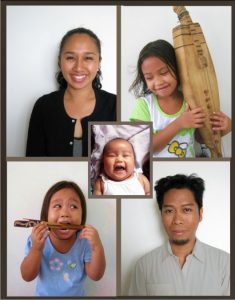
How do we do it?
We engage them in workshops. Let’s assume that a tribe’s artistic form of communication is song. The tribal folk come together, sometimes in their vibrant tribal clothing, bringing with them their native instruments. At other times, we meet with them under their hut beside clucking chickens or snorting pigs. We guide them as they compose their new worship songs in their own language and musical style. They gain a sense of ownership over what they create. “Finally, this sounds like our very own!” – is a common response.
We study together what the Scriptures teach about cultural art forms and expressions, helping them come to a realization and decision to worship the One True God in their own unique way. We try to weed out extra-biblical teachings that may result in the wholesale rejection of tribal traditions. We help them realize their freedom to worship in the Spirit. We encourage and nurture them to continue a culture of constant creation that is faithful to their own identity in order to grow a dynamic Christianity. “No need to write in English!” is a liberating reaction.
Variety of Arts Tradition
Different ethnic people groups have varying world views, ways of learning, and ways of transferring knowledge and wisdom. For instance, there are communities in Northern Luzon who take 6-36 hours to chant their history and genealogy from memory. They pass information this way to their children. In their colorful garb, some tribes in Mindanao dance about a principle or teaching when it is of important value. Others have intricately embroidered apparel that represent hours’ worth of ancestral stories.
Oh, I Thought…
On the other hand, EthnoArts is a mindset. In our involvement with this kind of work, we had to unlearn judgments and assumptions we carried about our indigenous brothers and sisters.
In the not-so-distant days of doing tribal missions, it was quite typical that missionaries would bring to the tribe the “hows” of worship and “proper” expressions of Christianity— such as the usage of a dominant language and style in music, the norm of devotional materials, the procedure of creating fellowships, the way of arranging space, etc. The tribes were taught to play the foreign guitar or keyboard, using styles with matching amplification systems; hence, bypassing their locally hand-made lutes. They were made to wear polo shirts and slacks instead of their bahag, and made to sit in rows and pews instead of their circular meeting arrangement. In an earnest effort to bring them what we know about Christ and Christian growth, they were unknowingly taught that to be acceptable before God, they had to act, look, or sing in a foreign way—short of imitating somebody else.
Redeem To Re-use
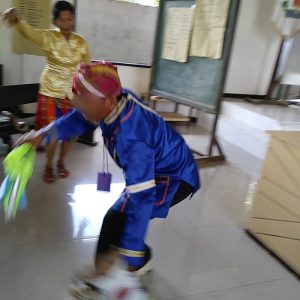
Dance of courtship with sword and shield.
It is heart-breaking to hear stories from believers about how their tribe eventually burned all their ethnic instruments because they were labeled as pagan. While it is true that some of these instruments were used in idolatrous worship, it does not mean that there is no room for redemption. If the guitar, piano or drums may be redeemed for use in worship (despite its similar history of evil-spirited use in the past eras), then these instruments could certainly be redeemed for Jesus.
It is fulfilling to witness joy as indigenous churches find their unique place in God’s Kingdom. In Cotabato, a community finally had the courage to take their now-dusty instruments and pull them together for use. They gathered around these instruments, asking God to purify them and recommitting them for Him. Celebration was found in the faces of the community afterwards!
As we allow our indigenous churches to find their cultural identity in Christ, they come to understand that God loves them for who they are.
Heart Language
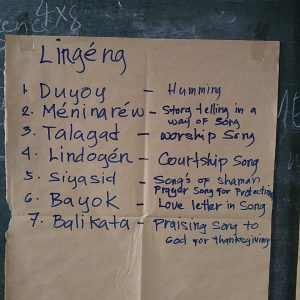
An inventory of songs written on Manila paper
In one of the songwriting workshops we facilitated in Ifugao, a lady came to us with tears in her eyes. After going through the process of writing a new worship song in their own language, recording and singing it, she shared with us: “I did not know that God understands our language.” Many of them were joyful that they were able to celebrate Jesus in their own language and in music that was closest to their hearts.
We always hear how tribes experience a more heartfelt, deeper communion with God when they start creating their own songs and dances.
His Design, Our Freedom
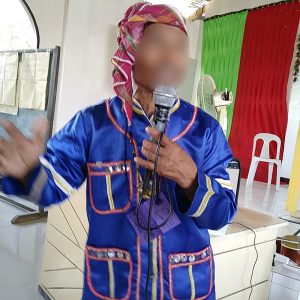
The tribal leader holding a microphone, testifying about how songs are important to their culture.
When we accept ourselves as God’s unique handiwork in a big tapestry of tribes and tongues, we are freed to bring Him all of who we are so we can glorify Him. To copy others is not necessary. God created worship, birthing diversity among us and bestowing creativity. He is the author of our identity.
The words in Revelations 5:9-10 enlighten us— “And they sang a new song with these words: “You are worthy to take the scroll and break its seals and open it. For you were slaughtered, and your blood has ransomed people for God from every tribe and language and people and nation. And you have caused them to become a Kingdom of priests for our God. And they will reign on the earth.”
First published in One Voice Magazine on May 31, 2019
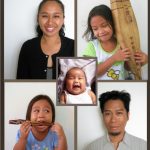
Junn & Anne Esteban
Junn may like talking so much about music, but his college course was Fine Arts. He is married to Anne who enjoys cooking and eating, and who always has a separate stomach for good coffee and dessert. All the energy coming from food is expended in the caring of (and homeschooling of) two of their three soda pop fizz girls, Himig, Harana and Hiraya.



